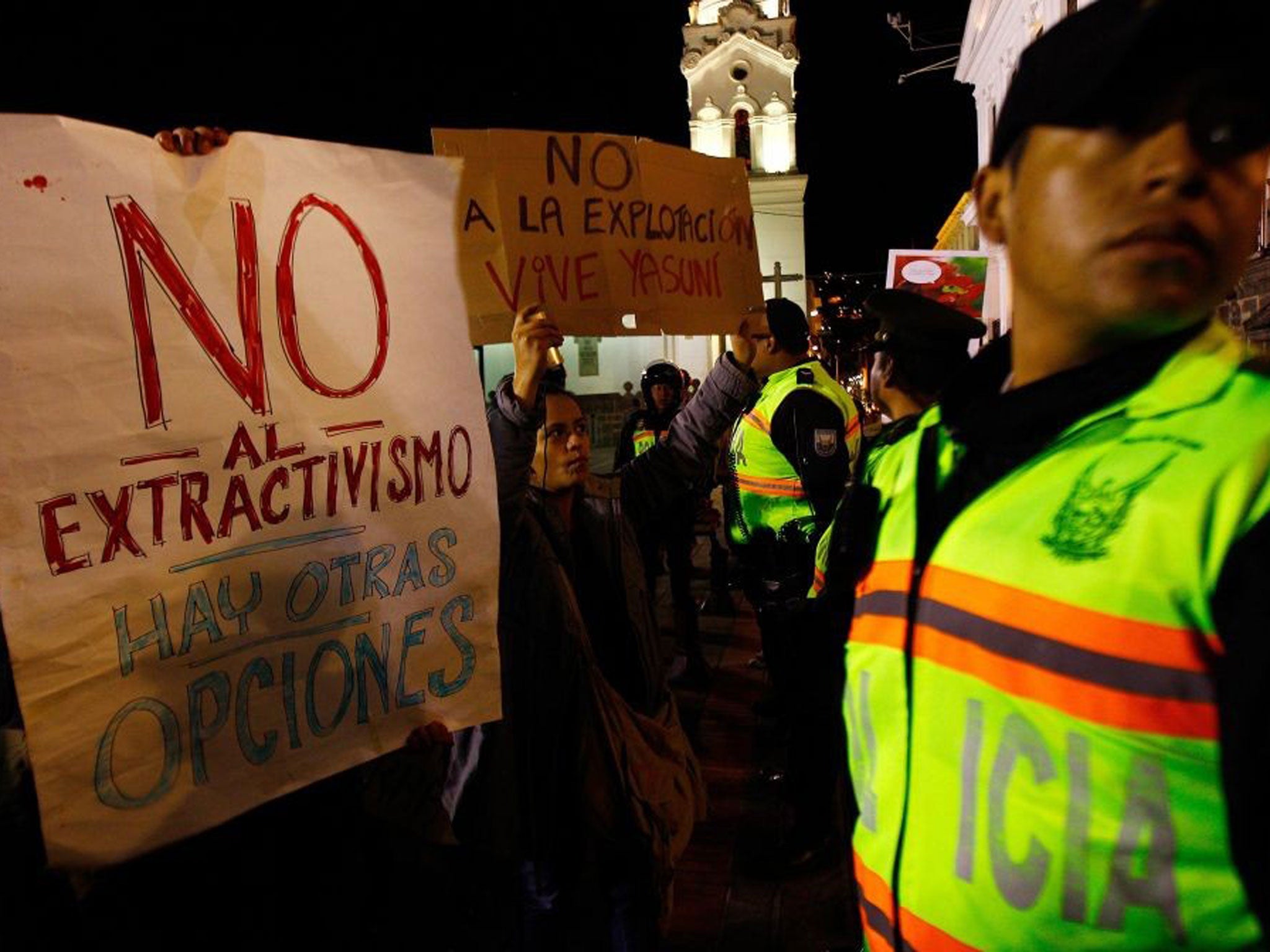Ecuador will go ahead with drilling in Amazon rainforest after abandoning 'pay or we drill' scheme
Ecuador's president Rafael Correa is abandoning his ambitious ambitious plan to persuade rich nations to pay his country not to drill for oil in an unspoiled Amazon rainforest preserve.
Mr Correa blames richer nations for refusing to financially back the initiative and for leaving the country with no other option but to pursue the drilling.
Environmentalists had initially hailed the initiative first proposed by Mr Correa in 2007, saying he was setting a precedent in the fight against global warming by lowering the high cost to poor countries of preserving the environment.
Oil is Ecuador’s is understood to be their chief source of foreign earnings. The country produces 538,000 barrels of crude a day, delivering nearly half its production to the United States.
In a nationally televised speech, he told the audience “the world has failed us,” adding that the global recession was in part responsible. However, he chiefly blamed “the great hypocrisy” of nations who emit most of the world's greenhouse gases.
“It was not charity that we sought from the international community, but co-responsibility in the face of climate change,” he said.
Demonstrators held banners in the streets with slogans such as "Ecuador doesn't love life" during a protest outside the government palace in Quito as he announced his decision.
His no-drilling plan had envisioned generating donations from wealthier countries paying Ecuador half the 7.2 billion dollars (£4.6 billion) in revenues expected to be generated over 10 years from the 846 million barrels of heavy crude estimated to be in Yasuni.
Not drilling in the reserve would keep 410 million metric tons of carbon dioxide from entering the atmosphere, officials had estimated during their global lobbying campaign that included organising tours of the reserve for journalists.

The Amazon rainforest is also home to many indigenous tribes, including the Kichwa, the Shuar and the Huarani, with each having their own characteristic features, languages and customs.
But while Mr Correa's proposal generated interest, there were few takers, in part because he insisted that Ecuador alone would decide how the donations would be spent. European countries expressed the most interest but still baulked.

Mr Correa had sought 3.6 billion US dollars (£2.3 billion) in contributions to maintain a moratorium on drilling in the remote Yasuni National Park, which was declared a biosphere reserve by the United Nations in 1989 and is home to two Indian tribes living in voluntary isolation.
But he said Ecuador had raised just 13 million dollars (£8.3 million) in pledges and that he had an obligation to his people, particularly the poor, to move ahead with drilling. The UN and private donors had put up the cash.
Mr Correa said he was proposing to the National Assembly, which his supporters control, oil exploration in Yasuni amounting to less than 1 per cent of its 3,800 square miles
Ecuador is an Opec member that depends on oil for a third of its national budget. The three oil fields in Yasuni represent 20 per cent of its oil reserves.
Political analyst Jose Fuentes of the Flacso university in Quito said Mr Correa had opted “for economic pragmatism” in abandoning the environmentalist image he had wished to project internationally.
Matt Finer, a scientist at the US-based Centre for International Environmental Law, said the decision to abandon this alternative model as extremely disappointing.
“The Yasuni-ITT Initiative was the lone exception to the relentless expansion of hydrocarbon projects deeper into the most remote tracts of the western Amazon. Now there is really no viable alternative to stop the wave of drilling slated for the most biodiverse region of the world,” he said.
Patricio Chavez, director of the environmental group Amazonia por la Vida, criticised Mr Correa for leaving potential donors a single option of “pay or we drill.”
Additional reporting by agencies
Join our commenting forum
Join thought-provoking conversations, follow other Independent readers and see their replies
Comments
Bookmark popover
Removed from bookmarks